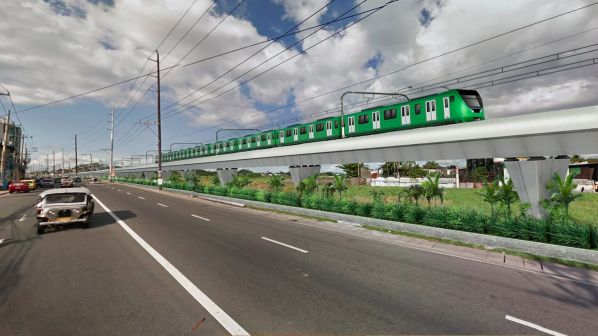DOF secretary, Mr Carlos Dominguez, and Jica Southeast Asia and Pacific department director general, Mr Shigenori Ogawa, signed the loan agreement witnessed by Department of Transportation (DOTr) undersecretary for railways, Mr Timothy John Batan, Philippine National Railways (PNR) general manager, Mr Junn Magno, minister Atsushi Kuwabara of the Japanese Embassy, and Jica director, Mr Sachiko Takeda.
The 147km NSCR project includes three sections, which will be operated as one integrated line when completed:
- PNR Clark Phase 1, a 38km line from Tutuban, Manila, to Malolos, Bulacan
- PNR Clark Phase 2, a 53km line from Malolos to Clark, Pampanga, and
- PNR Calamba, a 56km line from Manila to Calamba, Laguna.
The NSCR will improve connectivity and mobility between Central Luzon in the north, Metro Manila in the centre, and Calabarzon in the south.
The project will be implemented using Japanese technology, including energy-efficient trains, platform screen doors, signalling, flood resilience and anti-seismic designs.
DOTr says construction of the NSCR aims to significantly reduce travel time through a safe, reliable, and convenient means of transport.
PNR Clark will halve the travel time from central Manila to Clark International Airport to less than one hour, compared with two hours by car.
PNR Calamba will reduce travel time from Manila to Calamba from three hours to one hour. The entire NSCR is expected to benefit up to 350,000 passengers per day when partial operation begins in 2022, and 550,000 passengers daily when full operation commences in 2023.
Construction is scheduled to begin with PNR Clark Phase 1 in February.
DOTr says the NSCR is the biggest project to be undertaken so far under Philippine president Mr Rodrigo Duterte’s “Build, Build, Build” programme, with a total cost of Pesos 628.42bn ($US 11.9bn).
It is also one of the key railway projects supported by Japan, in addition to the Metro Manila Subway and the Metro Rail Transit (MRT) Line 3 Rehabilitation projects.
The loan agreement, which represented the first tranche of Japan’s total commitment for the NSCR project, will finance initial works including consulting services, rolling stock, and electro-mechanical portions of the project.
It carries an annual interest rate of 0.1% for non-consulting services and 0.01% for consulting services. The loan is payable within 40 years, inclusive of a 12-year grace period.
The Asian Development Bank (ADB) will co-finance the civil works portion of the NSCR project.
For detailed information on rail projects around the world, subscribe to IRJ Pro.

